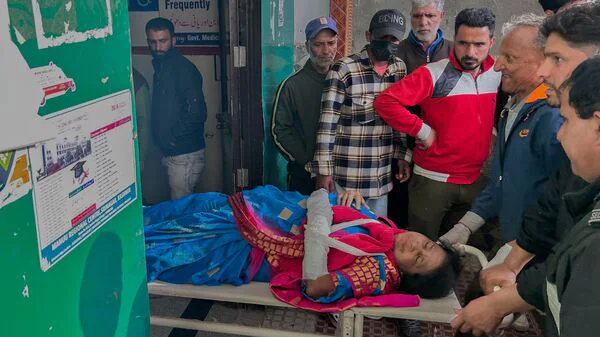Overview:
In the wake of the deadly terror attack in Pahalgam, Jammu and Kashmir, the Indian government has moved swiftly, with Prime Minister Narendra Modi cutting short his Saudi Arabia trip to take charge of the situation. A high-level meeting was convened as soon as he landed in New Delhi to assess security and formulate a response.
What Happened in Pahalgam?
On April 22, militants opened indiscriminate fire on tourists at Baisaran, a scenic spot in Pahalgam. At least 26 people lost their lives, including foreign nationals reportedly from Nepal and the United Arab Emirates. Several others were injured in the attack.
The assault has sent shockwaves across the nation, with heightened alert in the Jammu region and widespread public outrage.
PM Modi’s Immediate Response
Prime Minister Narendra Modi landed in Delhi in the early hours of Wednesday, having cut short his diplomatic mission to Saudi Arabia. Without delay, he held a meeting at the airport with key officials including:
- External Affairs Minister S. Jaishankar
- National Security Advisor Ajit Doval
- Foreign Secretary Vikram Misri
Later, Modi is expected to chair a Cabinet Committee on Security (CCS) meeting to discuss a robust counter-response and enhanced defense strategies.
In a strong statement, PM Modi said:
“Those behind this heinous act will be brought to justice… they will not be spared. Our resolve to fight terrorism is unshakable.”
Finance Minister Nirmala Sitharaman has also cut short her visit to the US and Peru to return to India, underlining the gravity of the situation.
Global Support and Condemnation
Global leaders have stood by India in its moment of grief and condemned the Pahalgam attack unequivocally.
Messages of solidarity came from:
- EU President Ursula von der Leyen
- French President Emmanuel Macron
- Australian PM Anthony Albanese
- Nepal PM K.P. Sharma Oli
Albanese, whose country is a Quad partner, stated:
“There is no justification for this violence. Our hearts go out to the injured, and to those mourning loved ones.”
Nepal is verifying the reported death of one of its nationals in the attack and has promised full assistance.
Security Action on the Ground
Security forces have responded with intensified operations:
- Three foreign militants were neutralized earlier in Kishtwar near the attack site.
- An infiltration attempt was foiled in Baramulla’s Uri sector on Wednesday; two militants were killed.
- Several areas in the Jammu region are on high alert.
- Protests have erupted across affected regions, demanding justice and tighter security.
What’s Next?
The CCS meeting chaired by the Prime Minister will be crucial in charting India’s security and diplomatic roadmap. Counter-terror operations are likely to be intensified in sensitive zones across Jammu and Kashmir.
India may also push for greater international pressure on terror-sponsoring networks and nations.
Bottom Line:
The Pahalgam terror attack is a brutal reminder of persistent threats to India’s internal security. But the swiftness of the government’s response — both at home and abroad — underscores its firm resolve. As India mourns, it also prepares to retaliate, ensuring that those behind the attack face the full force of justice.

